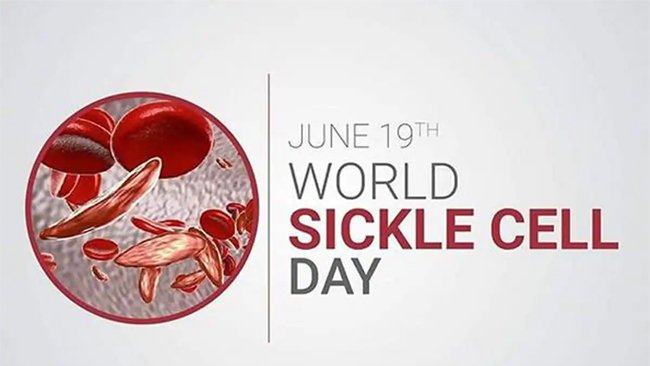
Jaipur, June, 2021.
World Sickle Cell Day, observed annually on June 19th,
aims to raise awareness on Sickle Cell Disease (SCD) at a national and global
level. SCD, an inherited blood disorder, poses a major health burden in India. However,
it remains neglected, with the ongoing pandemic and increasing burden on
healthcare infrastructure in the country. This contributes to low levels of
awareness, reduced screening coverage and a paucity of data which hinders
research and treatment innovations. In order to advance SCD as a public health
priority and enable timely diagnosis and effective disease management, there is
an urgent need to scale screening of newborns and pregnant women as a first
step of a holistic strategy to better support SCD patients and limit their
complications.
India is estimated to have the second highest
national burden of sickle cell disease in the world. SCD prevalence varies
significantly across the country, with particular prominence in tribal groups. The
condition is reported to be most prevalent in central India, across the “sickle
belt”, stretching from Gujarat to Odisha, with the states of Chhattisgarh,
Bihar and Uttar Pradesh estimated to have the highest prevalence. Recently, its
prevalence has been observed across non-tribal populations as well. This raises
the urgent need to recognise sickle cell disease as a public health priority in
the country.
Discussing SCD’s prevalence in disadvantaged
communities,Dr. Kapil Garg, Senior Professor and Head, PediatricHematology
Oncology Division, SMS Medical College, Jaipur said, “Currently, there
are no well documented studies on sickle cell disease prevalence in Jaipur or
Rajasthan; although the disease is more common amongst tribal communities of
Rajasthan in Sirohi, Pali, Udaipur and Dungarpur. Few studies have suggested a
9.2% prevalence of the disease in the Garasia tribal community of Rajasthan. A
deficiency of robust local data has limited advancements in research and
innovation, and also affected our understanding of disease burden.”
Dr. Kapil Garg continued, “Increasing disease awareness amongst physicians
and the local community is a vital first step to ensure prompt diagnosis and
management, as well as to address issues of social stigma, which contribute to
psychosocial problems. Screening programs by the government, especially in
tribal communities, should also include effective genetic and pre-marital counselling.
Neonatal screening can help in early diagnosis and timely treatment so parents
can support their child in receiving holistic treatment and disease management
solutions.Besides, scaling advanced therapy solutions, through extended
government support, is also an important measure to support SCD patients.”
Mr. Gautam Dongre, Member Secretary of
National Alliance of Sickle Cell Organisations (NASCO), is the father of 2 sickle cell patients. According
to him, "Inclusion of patient's and caregiver's voice is essential to
frame and implement any policy for the Sickle Cell Disease (SCD) community
across India. Our mission is to ensure every Sickle Cell Disease warrior across
India lives a pain-free life and gets timely access to comprehensive quality
care & treatment at all healthcare facilities."
SCDrefers to a group of inherited red blood
cell disorders. It is characterised by repeated episodes of debilitating pain,
also known as vaso-occlusive crises (VOCs), and fever. VOC episodes among
sickle cell patients are also associated with increased hospitalizations and
morbidity. Organ damage, chronic kidney disease and functional disability are a
few of its longer-term complications[1],
with SCD patients also more susceptible to infections, stroke, acute chest
syndrome, fatigue and leg ulcers. Delay in diagnosis and treatment of the
disease can amplify these problems.
Owing to SCD being historically neglected,
progress in terms of diagnosis, treatment and the adoption of innovation has
been slow.To be recognised as a public health priority, SCD requires anational
programme, a comprehensive care plan and establishment of standard
India-specific treatment protocols, supported by capacity building at the grassroots
level, so that states can deliver localised plans catering to their demographic’s
specific needs.
By shaping policies, scaling the availability
of better treatment facilities and advanced therapies, patients’ abilities to
manage the disease and their quality of life can be significantly improved.